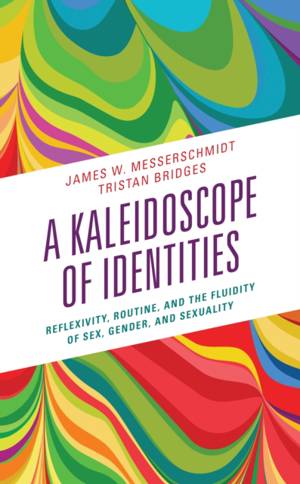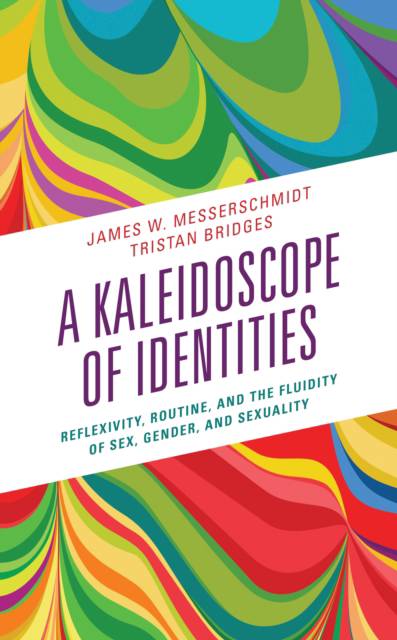
- Afhalen na 1 uur in een winkel met voorraad
- Gratis thuislevering in België vanaf € 30
- Ruim aanbod met 7 miljoen producten
- Afhalen na 1 uur in een winkel met voorraad
- Gratis thuislevering in België vanaf € 30
- Ruim aanbod met 7 miljoen producten
Zoeken
A Kaleidoscope of Identities
Reflexivity, Routine, and the Fluidity of Sex, Gender, and Sexuality
James W Messerschmidt, Tristan Bridges
Paperback | Engels
€ 67,95
+ 135 punten
Uitvoering
Omschrijving
Contemporary theoretical tools in the social sciences and humanities hinder an understanding of the dynamic interplay between reflexivity and routine in the formation of sex, gender, and sexual identities. In A Kaleidoscope of Identities, James W. Messerschmidt and Tristan Bridges build on the work of feminist sociologists in examining the relationship among situational interaction, accountability, and relational and discursive social structures to uniquely conceptualize sex, gender, and sexual practice as both reflexive and routine. Drawing on nuanced and powerful life-history interviews, Messerschmidt and Bridges present a new theoretical framework situating reflexivity and routine in a much more symbiotic relationship than has been previously acknowledged. Without privileging either, Messerschmidt and Bridges explore this relationship through a novel analysis of the ways reflexivity and routine collaboratively shape sex, gender, and sexual identities over time and across space. A Kaleidoscope of Identities provides a fresh, accessible, and provocative argument advancing our knowledge on the changing nature of sex, gender, and sexual identity formations alongside transforming systems of power and inequality.
Specificaties
Betrokkenen
- Auteur(s):
- Uitgeverij:
Inhoud
- Aantal bladzijden:
- 192
- Taal:
- Engels
Eigenschappen
- Productcode (EAN):
- 9781538167878
- Verschijningsdatum:
- 20/06/2022
- Uitvoering:
- Paperback
- Formaat:
- Trade paperback (VS)
- Afmetingen:
- 152 mm x 229 mm
- Gewicht:
- 254 g

Alleen bij Standaard Boekhandel
+ 135 punten op je klantenkaart van Standaard Boekhandel
Beoordelingen
We publiceren alleen reviews die voldoen aan de voorwaarden voor reviews. Bekijk onze voorwaarden voor reviews.








